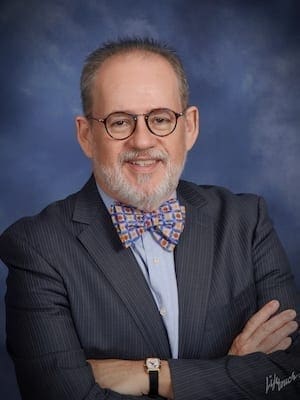“Detroit” may have moved out of your local Cineplex, but I cannot think of a timelier movie.
With all the talk and action around the events in Charlottesville, Virginia, “Detroit” can act as a primer to help whites understand some of the anger that people of color are showing.
The movie is set in 1967, during the 12th Street Riot. It begins by telling of the mass migration of African-Americans from the south to places like Detroit looking for a new life away from Jim Crow.
What they discover is that whites in the urban areas of the city push them into segregated areas.
Add to this the aggressive policing policies of the Detroit Police Department, which was mostly white, and you have a volatile mixture just waiting to explode.
The focus of the movie is an incident that took place at the Algiers Motel. During the riots, snipers were shooting at the police, National Guard and the Michigan State Police.
On the night of July 25, 1967, a young African-American man took a starter pistol he had and fired blanks out into the night sky from one of the rooms at the Algiers.
The police respond with full force and three Detroit police officers (played by Will Poulter, Jack Reynor and Ben O’Toole) line up all the males, who all are black, and two white females to shake them down.
Their goal is to find the shooter, but what follows is the murder of three of the males and the beating of the others.
The officers line up everyone they have captured with their faces against the wall. Then they take one of the black males into a separate room and tell them they are going to kill them if they do not give up the shooter.
At first they do not shoot them, but only shoot away from each one to scare the others. But as time goes on and their patience wears thin, they end up murdering three of the suspects.
The night ends when they decide that they, the police, need to get out of there; they let the people against the wall go away one by one. But not before they tell each one they saw nothing and not to tell anyone what they witnessed.
Within the mix of these police is a black security guard named Dismukes. He tries to do as much as he can to make the situation better, but in the end he is just a witness to the madness.
As I watched “Detroit,” I kept feeling myself get angry.
My anger was directed at how people of color are treated. Not only how they are treated in this movie, but also in general.
I wish that I could say that what happened in this movie was an isolated incident. I wish I could say it is part of the checkered past that is our history as a nation. I wish I could say that these things don’t happen any longer, but they do.
And they keep on happening. They seem to never stop.
What “Detroit” does is force us to have a conversation that most of us don’t want to have. That conversation is about what is going on in this country, which has been going on for too long.
Ibram X. Kendi wrote a book all of white America needs to read called, “Stamped from the Beginning: The Definitive History of Racist Ideas in America.”
He writes about all of the racist beliefs and how they came to be. One of his focuses was on the issue of policing focusing on black males as being the primary actors in the crime in America.
He ends his book with these words. “There will come a time when Americans will realize that the only thing wrong with Black people is that they think something is wrong with Black people. There will come a time when racist ideas will no longer obstruct us from seeing the complete and utter abnormality of racial disparities. There will come a time when we will love humanity, when we will gain the courage to fight for an equitable society for our beloved humanity, knowing, intelligently, that when we fight for humanity, we are fighting for ourselves. There will come a time. Maybe, just maybe, that time is now.”
Michael Parnell is pastor of Temple Baptist Church in Raleigh, North Carolina. He is married and has two boys. His love is for movies, and he can be found in a theater most Fridays.
MPAA Rating: R for strong violence and pervasive language.
Director: Kathryn Bigelow
Writer: Mark Boal
Cast: John Boyega (Dismukes), Will Poulter (Krause), Algee Smith (Larry), Jacob Lattimore (Fred), Hannah Murray (Julie), Jack Reynor (Demens), Ben O’Toole (Flynn).
The movie’s website is here.

